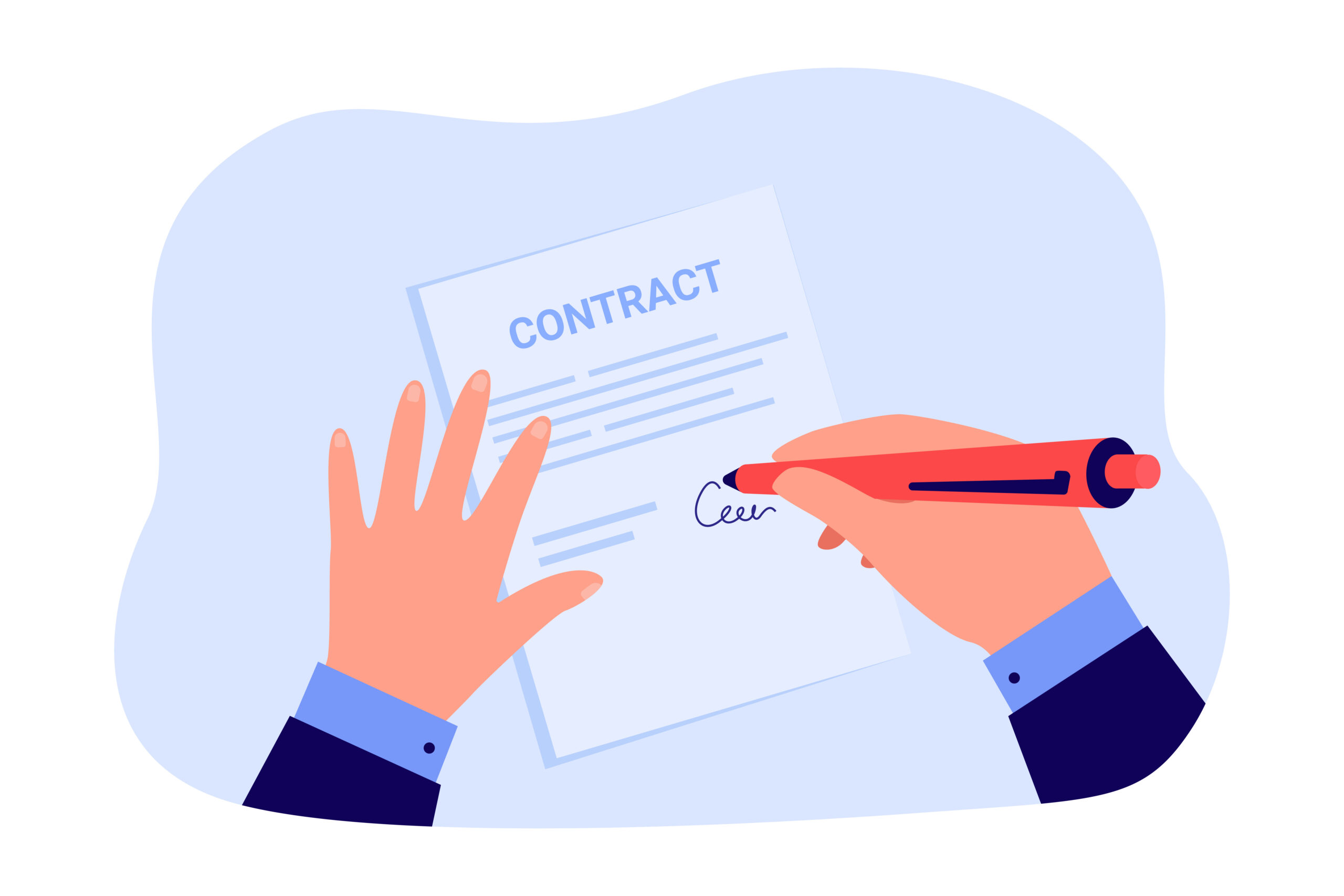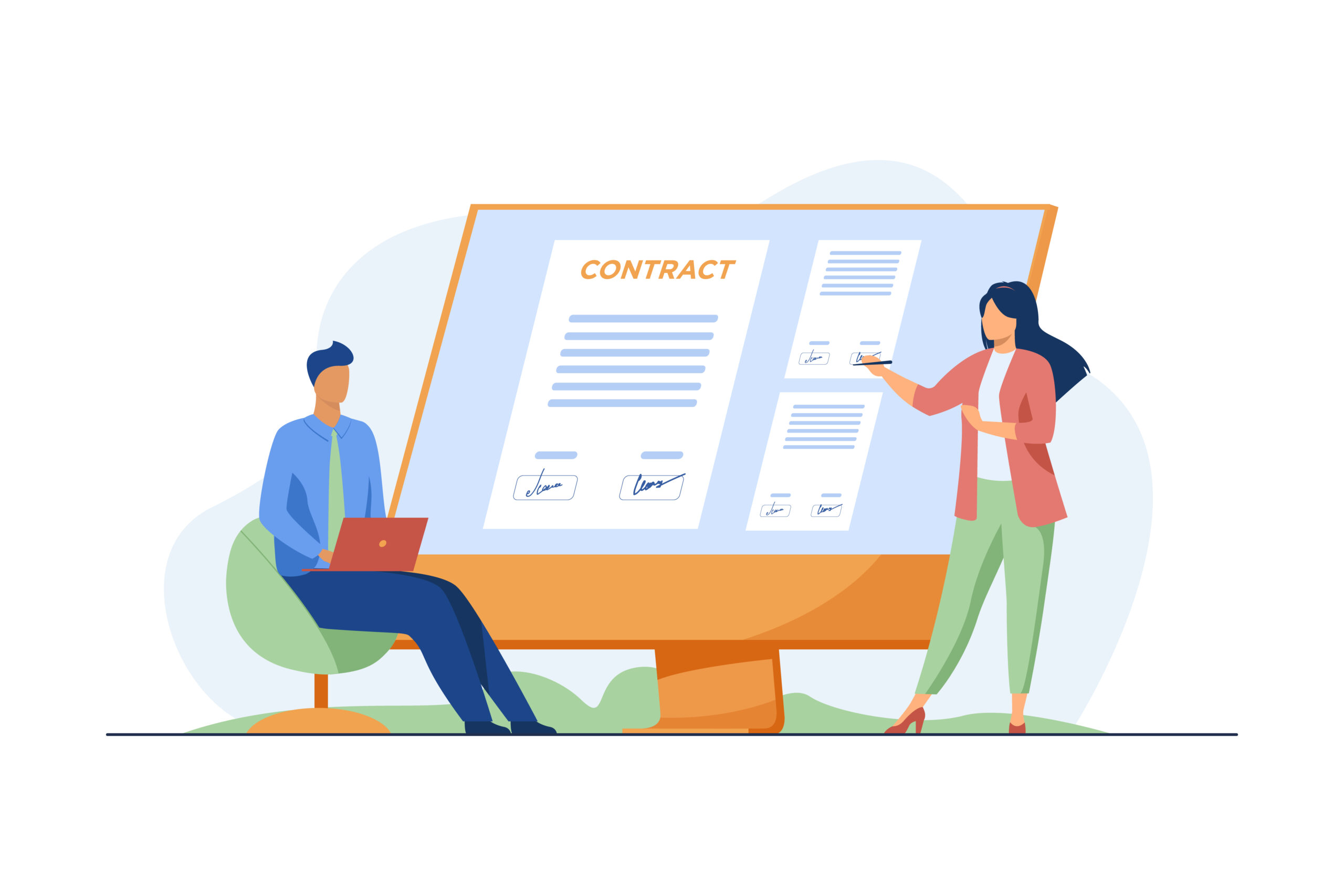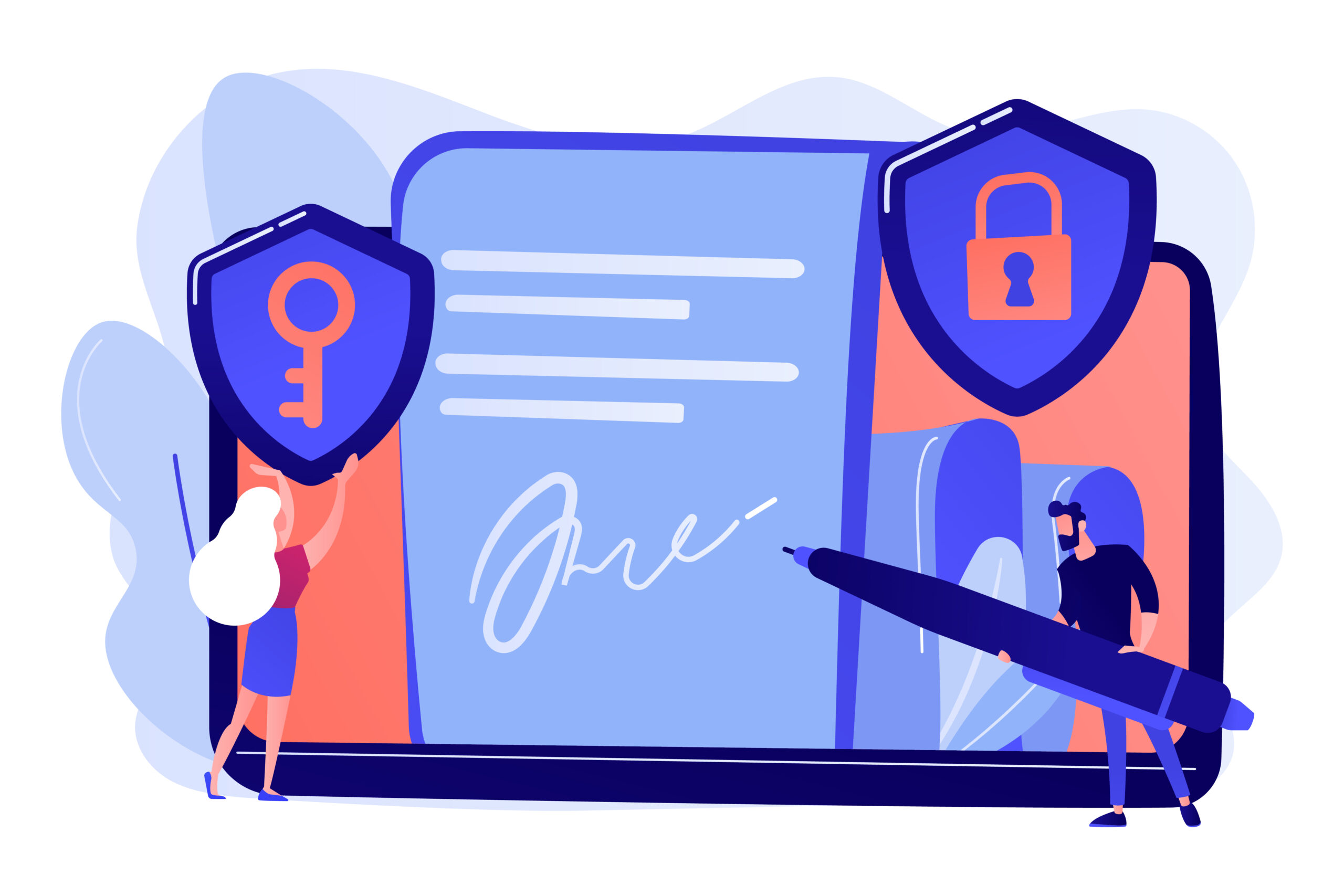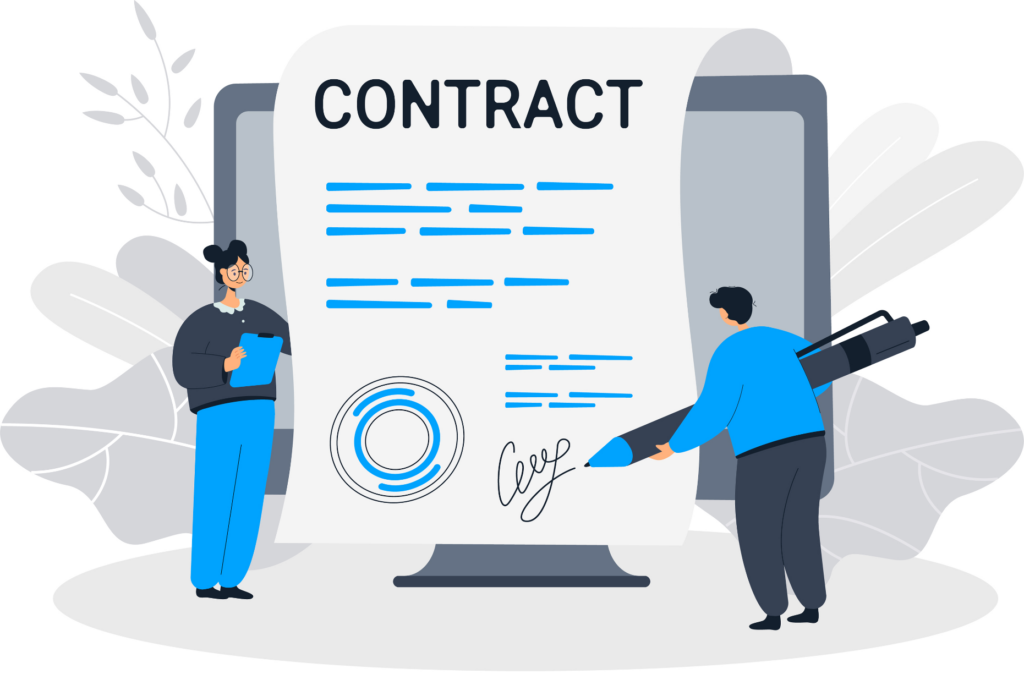Picture this: you’re at the beach, lounging with a cool drink, and suddenly you remember an important document needs your signature. Traditionally, you’d have to cut your day short, find a printer, sign, scan, and send it back. But now, with the advent of eSignatures, you can complete this task without ever leaving your spot in the sun.
This article delves into the world of eSigns, exploring their legality, functionality, and the numerous benefits they offer. We’ll navigate the different types of eSignatures, understand how they work, and address any lingering concerns about their security and validity. By the end, you’ll be equipped with the knowledge to confidently embrace eSigns and transform your signing processes into a secure, efficient, and eco-friendly experience.
What are eSignatures?

In the whirlwind of modern business, the ability to execute agreements swiftly and securely is paramount. The traditional methods of handling physical documents and requiring in-person signatures have become cumbersome and outdated. Enter eSignatures – a game-changer in the realm of agreements and contracts. An eSignature, or electronic signature, is a legally binding way to approve a document digitally. Unlike the old-fashioned wet signature, where you physically write your name, eSignatures come in various forms, each suited to different needs and levels of security.
You might like to read: Best Electronic Signature Software: Top 7 E-Sign Tools In 2024
Types of eSignatures

The world of eSignatures might seem complex at first glance, but it essentially boils down to two main categories: Simple (or Standard) eSignatures and Advanced (or Strong) eSignatures. Each serves different purposes based on the document’s sensitivity and required security level.
Simple eSignatures
Simple eSignatures are the bread and butter of digital signing. They are user-friendly and sufficient for many low-risk agreements. Here’s a closer look:
- Clickwrap: You’ve likely encountered this when downloading software or signing up for online services. By clicking a box to agree to the terms and conditions, you’re using a clickwrap eSign.
- Typed Name: Simply typing your full name into a designated field. It’s quick and easy, making it perfect for routine agreements.
- Image Upload: Uploading a scanned image of your handwritten signature. This adds a personal touch to the digital process.
These straightforward and efficient methods make them ideal for non-sensitive documents like permission slips or basic contracts.
Advanced eSignatures
Regarding high-value documents, Advanced eSignatures offer enhanced security and tamper-proof evidence. These include:
- Digital Signature Certificates (DSCs): Utilizing a digital certificate issued by a trusted authority, you can create a unique digital signature linked to the document. This method provides robust authentication and proof of who signed the document.
- Aadhaar eSign (India-Specific): Leveraging India’s Aadhaar identification system, this method uses your Aadhaar number and a one-time password (OTP) to authenticate the signer’s identity.
Advanced eSignatures are ideal for high-stakes documents such as financial contracts or legal agreements, where security and authenticity are paramount.
You might like to read: NDA And Confidentiality Agreement : The Ultimate Guide
The Legal Validity of eSignatures

A common question surrounding eSignatures is their legal standing. Are eSignatures legally binding? The short answer is a resounding yes. The Information Technology Act (2000) provides the legal framework for eSignatures in many jurisdictions, ensuring they hold the same weight as their physical counterparts.
For an eSignature to be legally valid, it must meet specific criteria ensuring the authenticity and integrity of the signed document. Here’s what makes an eSignature tick:
- Uniqueness: The eSignature must be unique to the signer and cannot be easily replicated.
- Control: The signer must have sole control over the mechanism used to create the eSignature.
- Linkage: The eSignature must be linked to the document in a way that detects any alterations after signing.
- Reliability: The method used to create the eSign must be reliable and capable of verification.
These criteria are typically met by Digital Signature Certificates (DSCs) issued by authorized certifying authorities and systems like Aadhaar eSign in India.
You might like to read: What Is A Contract? Definition, Importance And Key Terms
Benefits of Using eSignatures

- Efficiency Boost: eSignatures turbocharge your document signing process. Imagine ditching the print-scan-email routine. With eSignatures, you can sign contracts and agreements instantly from anywhere, using any device. No more delays waiting for documents to arrive or chasing down signatures. It’s all done with a few clicks, saving you valuable time that can be better spent growing your business.
- Cost Savings Galore: Say goodbye to hefty printing, postage, and storage costs. eSignatures eliminate the need for paper, ink, and physical storage space. You’ll save money on supplies and reduce your environmental footprint at the same time. It’s a win-win for your bottom line and the planet.
- Enhanced Security: Worried about document security? eSign offers top-notch protection. Advanced encryption and authentication technologies ensure that your documents are safe from tampering or unauthorized access. Each signature creates a unique digital fingerprint, providing irrefutable proof of who signed and when.
- Anywhere, Anytime Convenience: Need to sign a contract while on vacation or during a business trip? No problem. With eSigs, you have the flexibility to sign documents from anywhere in the world, at any time. Whether you’re using your laptop, tablet, or even your smartphone, the process is simple and secure. It’s the ultimate convenience for today’s busy professionals.
- Improved Customer Experience: Clients and partners appreciate a seamless signing experience. E-signatures streamline the process, making it easier and faster for them to complete transactions with you. By offering a hassle-free signing process, you enhance customer satisfaction and build stronger relationships. Happy customers mean repeat business and referrals, driving your success forward.
Incorporating eSignatures into your business not only saves you time and money but also enhances security and customer satisfaction. It’s a smart move that keeps your operations efficient and your clients happy.
Difference Between Digital Signature and eSignature

Both digital signatures and eSign facilitates electronic document signing, but they differ significantly in terms of technology, security, and legal implications:
Technology and Mechanism
Digital Signature: A digital signature is a cryptographic technique that uses a certificate-based digital ID issued by a trusted Certificate Authority (CA). It involves a complex process where a private key is used to encrypt the document, creating a unique digital fingerprint (hash). The recipient uses the sender’s public key to decrypt and verify the signature, ensuring the document’s integrity and authenticity.
eSignature: eSignature, or electronic signature, is a broader term that encompasses various methods of signing documents electronically. It includes simple methods like typing your name or clicking “I Agree,” as well as more secure methods like using digital signatures. eSignatures are typically easier to implement and do not always require the use of digital certificates or cryptographic keys.
Legal Validity
Digital Signature: Digital signatures are typically considered more secure and legally binding because they adhere to specific legal standards and regulations. They provide strong evidence of the signer’s identity and intent, making them suitable for high-value and legally significant documents.
eSignature: eSignatures are generally legally binding in many countries, including the United States under the ESIGN Act and the European Union under the eIDAS Regulation. However, the level of legal acceptance may vary depending on the type of eSignature used and local regulations. Simple eSignatures may be sufficient for many everyday transactions but may not meet the stringent requirements of certain legal documents.
Security and Authentication
Digital Signature: Digital signatures offer robust security due to the use of cryptographic keys and certificates issued by trusted authorities. They provide strong authentication of the signer’s identity and ensure the integrity of the signed document. Digital signatures are resistant to tampering and provide reliable proof of the document’s origin and content.
eSignature: While eSignatures can provide adequate security for many purposes, the level of security varies depending on the method used. Simple eSignatures may rely on basic authentication methods like email verification or knowledge-based authentication, which may not offer the same level of assurance as digital signatures. Advanced eSignature methods, such as those using digital certificates or biometric authentication, can provide higher security but may require more sophisticated infrastructure and processes.
Use Cases
Digital Signature: Digital signatures are ideal for scenarios requiring high security and legal enforceability, such as contracts, financial transactions, and regulatory filings. They are commonly used in industries where document integrity and authenticity are critical, such as finance, healthcare, and legal sectors.
eSignature: eSign is versatile and suitable for a wide range of everyday transactions and agreements. They are commonly used for agreements like sales contracts, service agreements, NDAs, and HR documents. eSignatures streamline workflows, reduce paperwork, and enable remote signing, making them popular in various industries and for personal use.
You might like to read: Contract Law: Understanding Legal Agreements
Security Considerations with eSignatures

Ensuring the security of electronic signatures (eSignatures) is crucial to maintaining the trust and integrity of digital transactions. Here’s a detailed look at the key considerations:
1. Signer Authentication
When you sign a document electronically, it’s vital to confirm the identity of the signer. Robust signer authentication methods prevent unauthorized access and fraud. Reputable eSignature platforms employ multi-factor authentication (MFA) to verify the signer’s identity.
Why is this important?
Multi-factor authentication (MFA) adds layers of security by requiring users to provide two or more verification factors. These factors can include something you know (like a password), something you have (like a mobile device), or something you are (like a fingerprint). By combining these factors, MFA ensures that only authorized individuals can access and sign documents, protecting against unauthorized use of eSignatures.
How does it work?
When you sign a document, the eSignature platform may prompt you to enter a password and then verify your identity using a second method, such as a code sent to your mobile phone. This process ensures that the person signing the document is indeed who they claim to be.
2. Document Integrity
Ensuring the integrity of signed documents is essential to prevent tampering or unauthorized changes after the signing process. Digital signatures create a unique fingerprint or hash of the document at the time of signing. Any subsequent changes to the document alter this hash, rendering the signature invalid and alerting all parties to the tampering attempt.
Why is this important?
Digital signatures use cryptography to create a unique identifier for each signed document. This identifier, known as a hash, is like a digital fingerprint of the document’s contents at the time of signing. If someone tries to alter the document after it’s been signed, the hash will change, indicating that the document has been tampered with. This ensures that the integrity of the document remains intact from signing to completion.
How does it work?
When you electronically sign a document, the eSignature platform generates a hash based on the document’s content and encrypts it using a private key. This encrypted hash is attached to the document along with your electronic signature. When someone verifies the signature, the platform uses a public key to decrypt the hash and compare it to a newly generated hash of the current document content. If the two hashes match, the document has not been altered since it was signed. If they don’t match, the document has been tampered with.
3. Data Security
Protecting the confidentiality and security of data during transmission and storage is paramount for eSignature platforms. Strong encryption protocols are used to safeguard sensitive information, ensuring that only authorized parties can access signed documents.
Why is this important?
Encryption scrambles data into unreadable code during transmission and storage. This ensures that even if intercepted, the data remains protected and confidential. Without the decryption key, unauthorized parties cannot access or decipher the encrypted information, providing a secure environment for eSigning sensitive documents.
How does it work?
eSignature platforms use advanced encryption standards (AES) to encode data before it’s transmitted over the internet or stored in databases. AES encryption algorithms convert plaintext data (the document) into ciphertext (encrypted data) using a cryptographic key. Only authorized users with the decryption key can reverse the encryption and access the original document. This encryption method protects documents from interception and unauthorized access, maintaining the confidentiality and integrity of signed agreements.
By understanding these security considerations and how they work, businesses and individuals can confidently adopt eSignatures for their document signing needs. Choosing a reputable eSignature provider that prioritizes authentication, document integrity, and data security ensures a safe and legally binding eSigning experience.
You might like to read: Contract Management Security: Risks, Mistakes And Solutions
Using CLM Software for E-Signing

Contract Lifecycle Management (CLM) software enhances the efficiency of e-signing by managing the entire lifecycle of electronic documents. Here’s how to utilize a CLM system for e-signatures:
- Import Your Documents: Upload your PDF files into the CLM system. Whether it’s a contract, NDA, or any other document, the CLM software will manage it all.
- Create and Use Templates: Take advantage of pre-made templates to streamline the document creation process. This ensures consistency and saves time.
- Integrate with Other Systems: CLM software often integrates with platforms like Salesforce, Microsoft, Dropbox, and others. This integration helps in pulling data and pushing signed documents seamlessly.
- Configure Workflows: Set up automated workflows for document approval and signing. This step ensures that the right people are notified and involved in the signing process.
- Send for Signature: Use the CLM’s e-signature feature to send documents for signing. The system supports signing on various devices, including desktop, tablet, and mobile devices.
- Authenticate Signers: Utilize certificate authorities (CAs) and public key infrastructure (PKI) for robust signer authentication. This ensures the security and validity of the electronic process.
- Monitor and Track: Track the status of your documents in real-time. The contract management software provides detailed audit trails and notifications to keep you updated.
- Compliance and Security: Ensure compliance with regulations like the ESIGN Act, HIPAA, ISO, and IEC standards. CLM systems offer features like encryption and secure APIs to protect your data.
- Free Trial: Many CLM providers offer a free trial. Take advantage of this to test the system’s capabilities and see how it fits your needs.
- Finalizing the Agreement: Once all parties have signed, the CLM software stores the document securely. It records the electronic sound of acceptance, ensuring a legally binding and tamper-proof agreement.
You might like to read: Best Contract Management Software: Top 10 CLM In 2024
FAQs
What is an eSignature?
An eSignature is an electronic substitute for a handwritten signature on a document. It legally binds you to the agreement.
Are eSignatures legal?
Yes, in most countries, eSignatures are legal and enforceable under specific regulations.
Are there different types of eSignatures?
Yes, common types include:
- Simple eSignatures: Typing your name or clicking “I Agree.”
- Digital Signatures: More secure, using encryption to verify identity.
Is an eSignature safe?
Reputable eSignature platforms use security measures like encryption and audit trails to ensure document integrity.
How do I use eSignatures?
The process varies, but typically you’ll receive a document with signing instructions via email. You then review, sign electronically, and the document is securely stored.
What documents can I eSign?
Many documents can be eSigned, including contracts, NDAs, loan agreements, rental applications, and more.
Conclusion
Traditional paper-based signing can be cumbersome, delaying important approvals and hindering business agility. eSignatures offer a secure and efficient alternative, streamlining workflows and saving valuable time. The legal validity of eSignatures eliminates a major concern, ensuring contracts and agreements hold the same weight as their physical counterparts. With robust security features, eSignatures offer tamper-proof evidence, safeguarding your documents and transactions.
By embracing eSignatures, you’re not just saving time and resources; you’re also contributing to a greener future by minimizing paper usage. Stepping into the digital signing era empowers businesses to operate with greater efficiency and security, ultimately fostering a more streamlined and sustainable future.





